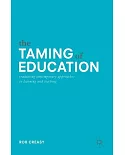Adopting an intersectional lens, this book’s main objectives are to interrogate and extend the scholarship examining leadership as a culturally-situated practice. In so doing, it challenges
existing bodies of research in three ways. Firstly, it challenges cross-cultural and multi-ethnic approaches to leadership practice and research, which continue to perpetuate unexamined
constructions of culturally inclusive leadership practices as an unproblematic binary, primarily focussed on what (frequently white, male) leaders ‘do’ to (generally non-white) ‘others’.
Secondly, it extends critical theories for and of leadership practice. Most frequently these approaches examine leadership and a particular category (e.g., ethnicity, gender, socioeconomic
status) from a unitary approach. Rarer still is scholarship which examines the intersectionality between leadership and a range of social categories, that is, which examines, for example, how
leadership operates as a raced, gendered and classed construct. Finally, the book extends critical leadership research approaches by interrogating the frequently unexamined assumptions
underlying the employment of different theoretical frameworks to examine leadership practice. It asks how these theoretical lens are employed by researchers in ways that may enable and/or
occlude particular aspects of culturally specific leading practices.















